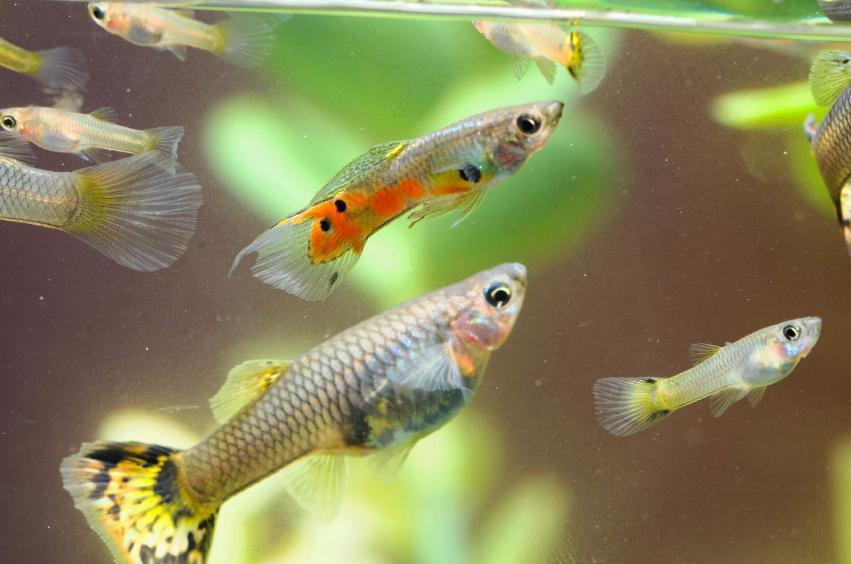Signs of Pregnancy in Fish
Determining whether your fish is pregnant can be a tricky task, especially for beginner fishkeepers. However, there are certain signs that can help you identify if your fish is expecting. Keep in mind that the signs of pregnancy can vary depending on the species of fish, so it’s essential to research the specific behaviors and physical changes associated with your fish’s breed.
Behavior Changes
One of the first signs to look out for is changes in your fish’s behavior. Pregnant fish may become more reclusive or seek out hiding spots within the aquarium. They may also become more territorial and aggressive, especially if other fish encroach on their space. On the other hand, some fish may become more active and restless as they prepare for the arrival of their fry.
Physical Changes
Another indication of pregnancy in fish is physical changes in their appearance. Female fish may appear rounder and more plump as they carry developing eggs. In some cases, you may even be able to see the outline of the eggs through the fish’s translucent skin. Additionally, some species of pregnant fish may develop a darkened gravid spot near their anal fin, which indicates that they are carrying eggs.
Eating Habits
Pregnant fish may also exhibit changes in their eating habits. Some fish may eat significantly more as they prepare to lay eggs, while others may experience a decreased appetite. Monitoring your fish’s feeding behavior can provide clues about their reproductive status.
Spawning Behavior
Certain species of fish exhibit distinct spawning behaviors when they are ready to lay eggs. This can include courtship rituals between males and females, as well as the actual process of egg-laying. Observing and understanding your fish’s natural spawning behaviors can help you recognize when they are pregnant.
Species-Specific Signs of Pregnancy
Different species of fish display unique signs of pregnancy, so it’s crucial to familiarize yourself with the specific characteristics of your fish. Here are some species-specific signs of pregnancy for commonly kept aquarium fish:
Livebearers (Guppies, Mollies, Platies)
Livebearing fish such as guppies, mollies, and platies are known for giving birth to live fry rather than laying eggs. In these species, you may notice the gravid spot darkening as the pregnant female’s abdomen swells. Additionally, the presence of a «gravid spot» is a reliable indicator of pregnancy.
Egg-Laying Fish (Tetras, Cichlids, Angelfish)
Egg-laying fish may exhibit behaviors such as digging in the substrate, cleaning flat surfaces, or guarding specific areas of the aquarium. Additionally, the female’s abdomen may appear more rounded as the eggs develop. Some species may also display color changes or increased aggression during pregnancy.
Breeding Bubbles (Betta Fish)
Male betta fish create bubble nests as part of their mating behavior. If you notice that a female betta is staying near the surface of the water, this could indicate that she is ready to release her eggs for the male to fertilize. Observing the male’s behavior can also provide clues about the reproductive status of your betta fish.
Confirming Pregnancy in Fish
While the signs mentioned above can provide strong indications of pregnancy, the only surefire way to confirm that your fish is pregnant is through observation of the breeding process. This may involve witnessing the actual spawning behavior, observing the release of eggs, or noticing the presence of fry in the aquarium.
Using a Breeding Tank
If you suspect that your fish is pregnant, you may want to consider setting up a separate breeding tank to provide a safe environment for the fry to develop. This will also allow you to closely monitor the behavior of the pregnant fish and increase the chances of successfully raising the offspring.
Seeking Professional Advice
If you are uncertain about the reproductive status of your fish, it’s always a good idea to seek advice from experienced fishkeepers or consult with a veterinarian who specializes in aquatic animals. They can provide guidance on identifying pregnancy and offer recommendations for caring for pregnant fish and their offspring.
Providing Care for Pregnant Fish
Once you have confirmed that your fish is pregnant, it’s important to provide the appropriate care to ensure the health and well-being of both the pregnant fish and her offspring.
Diet and Nutrition
Pregnant fish require a balanced and nutritious diet to support the development of their eggs and the growth of their fry. Consider supplementing their diet with high-quality foods such as live or frozen brine shrimp, daphnia, and specially formulated fry food.
Adequate Space
It’s essential to provide the pregnant fish with adequate space and hiding spots to reduce stress and aggression from other tank mates. As the due date approaches, you may also want to consider transferring the pregnant fish to a separate breeding tank to ensure the safety of the fry.
Water Quality
Maintaining optimal water quality is crucial for the health of pregnant fish and their offspring. Regular water changes and monitoring of water parameters such as ammonia, nitrite, and nitrate levels are essential to creating a healthy environment for the developing fry.
Observation and Support
Keep a close eye on the pregnant fish as her due date approaches. Provide a stress-free environment and observe any changes in behavior or appearance. If complications arise during the birthing process, be prepared to step in and provide assistance or seek professional help if necessary.
Conclusion
Understanding the signs and behaviors associated with pregnancy in fish can help you provide the best care for your aquarium inhabitants. By familiarizing yourself with species-specific indicators and being attentive to changes in behavior and appearance, you can ensure the well-being of your pregnant fish and their future offspring. Remember to seek advice from knowledgeable sources and be prepared to offer support and care throughout the breeding process.

